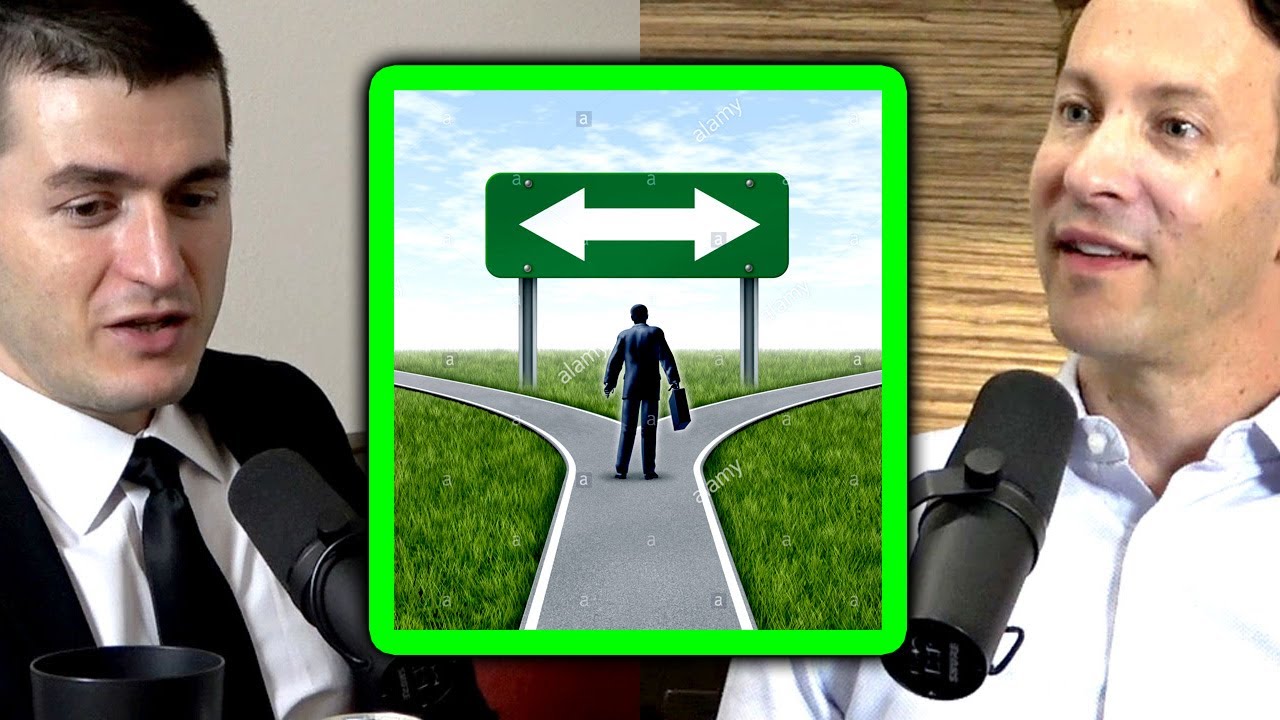Is There Free Will? | David Eagleman And Lex Fridman
Unleash Your Creative Genius with MuseMind: Your AI-Powered Content Creation Copilot. Try now! 🚀
Have you ever pondered the intricacies of the human brain? It's a topic often discussed, but do we truly grasp the profound connection between our brains and our very essence? Let's dive into this mysterious realm where science, philosophy, and a touch of curiosity collide.
Nature vs. Nurture: The Ultimate Duo
In the grand debate of nature versus nurture, it's easy to get lost in the labyrinth of these opposing forces. The truth, as it often is, lies somewhere in the middle. Nature, represented by our entire genome, lays the foundation of who we are. However, nurture, the sum of our life experiences, molds us into unique individuals.
Consider the influence of a mother's choices during pregnancy – stress, smoking, or drinking. These factors subtly sculpt the path of our emergence into the world. The interaction of nature and nurture is like a cosmic dance, guiding us down different trajectories on the space-time continuum.
Enter epigenetics, a fascinating field that explores the epigenome, the layer atop our DNA. This layer acts as a conductor, directing the symphony of gene expression. Even the early experiences of rats, from nurturing care to isolation, permanently alter their gene expression, setting them on distinct life courses. It underscores the paramount importance of investing in childhood development and education, for these formative years hold the key to our potential.
Free Will: A Neuroscientific Enigma
Now, let's venture into the philosophical depths of free will. Can we truly claim to possess it when our brain appears to be an exquisitely complex machine? With its 86 billion neurons, each as intricate as a bustling metropolis, the brain orchestrates a symphony of biochemical cascades, connected by half a quadrillion synaptic connections. It's a machine, but can it generate free will?
Most neuroscientists would assert that it's an uphill battle to reconcile free will with this intricate machinery. The brain operates under the laws of cause and effect, leaving little room for genuine autonomy. But, as history reminds us, science is a perpetually evolving narrative.
While the current consensus leans toward a lack of free will, the beauty of science lies in its humility. The history of scientific progress reveals that what we believe to be the final answer is merely a snapshot in time. Just as we once believed the Earth was flat, we now question if there are hidden dimensions of the brain's operation.
Imagine a Kalahari bushman discovering a radio buried in the sand. To comprehend the radio, the bushman dissects it, learning how wires and connections generate the voices within. However, he remains unaware of the unseen radio waves transmitting those voices. Likewise, in our quest to understand the brain, we may have yet to unveil the hidden forces that guide our decisions.
Embracing the Unknown
Our journey through the enigmatic terrain of the brain highlights the vast ocean of unknowns that surrounds us. We tread carefully through the known unknowns, the questions we actively seek to answer. However, the universe teems with a sea of unknown unknowns, riddles yet to be framed into questions.
In the face of these profound mysteries, we must embrace the wonder and humility that science offers. It is the recognition that the puzzle of the brain, like the universe, is far from complete. As we peel back the layers of human cognition, we embark on a perpetual journey towards understanding ourselves and the world in which we dwell.
So, as we ponder the brain, its intricate dance between nature and nurture, and the enigma of free will, let's remain curious and open to the possibility that our present certainties may someday yield to revelations yet unseen. In the grand tapestry of existence, there's always room for another stroke of genius, another chapter of discovery, and another leap into the unknown.

Related Recaps
- ՀԱՍԻՐ ԱՌԱՋԻՆԸ ՍՏԱՑԻՐ 3․000․000 ՓՈՂ 🔫 STYLE TOP 1 FAMILY ❤️ PROMO #amatri = 900 k
- RAMOS RIZO, INDIGNADO por RODILLAZO del ÁRBITRO a un jugador en el AMÉRICA vs LEÓN | Futbol Picante
- Gary Rossington, last original member of Lynyrd Skynyrd, dies at 71 l GMA
- WEDNESDAY ADDAMS AND ENID IN JAIL | 24 HOURS IN JAIL | FUNNY SITUATIONS IN PRISON BY CRAFTY HYPE
- REDHOOD THỬ THÁCH SINH TỒN SKY BLOCK HALLOWEEN TRONG MINECRAFT TẬP 2*MỀU PHÁ ĐẢO LÂU ĐÀI MA SKYBLOCK